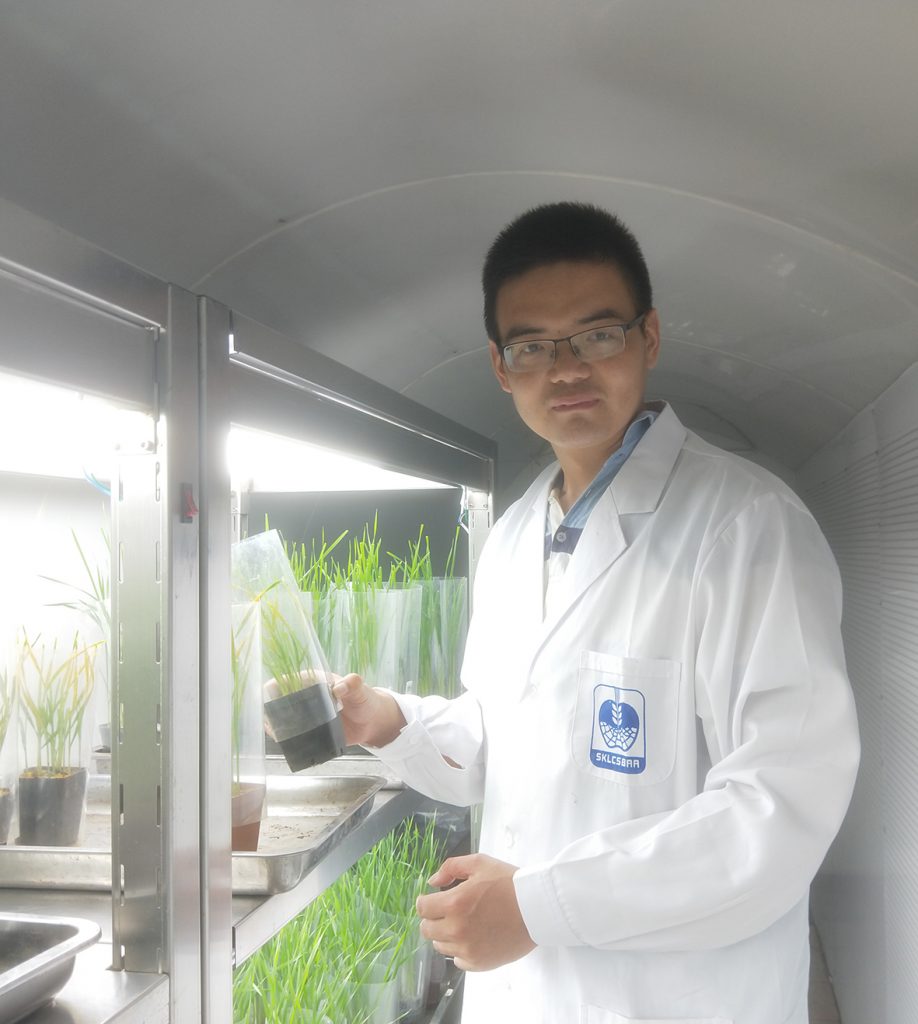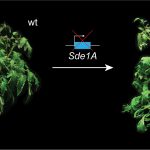Xingxuan Bai: Plant Physiology First Author

 Xingxuan Bai, first author of “Transcription factor BZR2 activates chitinase Cht20.2 transcription to confer resistance to wheat stripe rust”
Xingxuan Bai, first author of “Transcription factor BZR2 activates chitinase Cht20.2 transcription to confer resistance to wheat stripe rust”
Current Position: PhD student at College of Plant Protection of Northwest A&F University, China
Education: I obtained Bachelor and Master degree from College of Agriculture at Shanxi Agricultural University. During my master’s study, I have been worked as a visiting student at the Institute of Crop Science, Chinese Academy of Agricultural Sciences.
Non-scientific Interests: Running.
Bio:
I am currently perusing my Ph.D. in Prof. Jun Guo’s research group at the National Key Laboratory of Arid Area Crops in Northwest A&F University. My main research focuses on the study of broad-spectrum resistance to stripe rust in wheat. Stripe rust and drought have seriously threatened the safety of global wheat production. Utilizing the resistant varieties is the most economical and effective measure. However, the lack of resistant breeding resources has always been one of the main bottlenecks in wheat resistance breeding. Our previous study found that TaBZR2 functions positively in drought stress response by activating glutathione transferase 1 (TaGST1) gene. Fortunately, through the time series dual RNA-seq data using wheat plants inoculated with Pst, we found that TaBZR2 was also significantly up-regulated, and TaBZR2-OE wheat plants showed significant resistance to multiple races of stripe rust fungus. We further found that TaBZR2 activates transcription of a chitinase gene TaCht20.2, thereby increasing total chitinase activity in wheat. Our results indicate that TaBZR2 positively regulates wheat resistance to drought and stripe rust through different signal pathways, providing a good candidate gene for resistance breeding.
姓名:柏星轩
目前职位:博士研究生(西北农林科技大学植物保护学院)
教育背景:本科(山西农业大学农学院),硕士(山西农业大学农学院、中国农业科学院作物科学研究所)
兴趣爱好:跑步
科研经历简介:
目前我在西北农林科技大学旱区作物国家逆境重点实验室郭军课题组攻读博士学位,主要从事小麦广谱抗条锈病机理的研究。条锈病和干旱严重威胁小麦生产安全,种植抗病品种是最经济有效的措施。然而,抗病资源匮乏一直是小麦抗性育种的主要瓶颈之一。先前研究发现,TaBZR2转录因子通过转录激活小麦谷胱甘肽转移酶1(TaGST1)基因正向调控小麦的抗旱性。幸运的是,通过条锈菌侵染小麦的转录组分析,我们发现TaBZR2也被条锈菌诱导显著上调。过表达TaBZR2小麦对条锈菌多个生理小种的抗性显著提高。进一步明确TaBZR2通过转录激活几丁质酶基因TaCht20.2,进而提高了小麦体内几丁质酶活性从而引致对条锈病的广谱抗性。综上结果表明,TaBZR2通过不同的信号途径正向调节小麦对干旱和条锈菌的抗性,为抗性育种提供了基因资源和理论基础。



